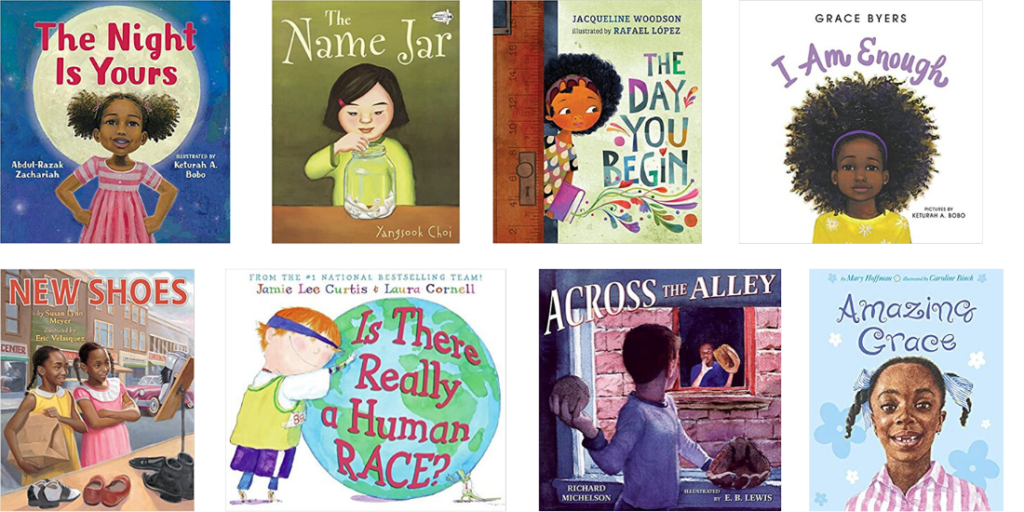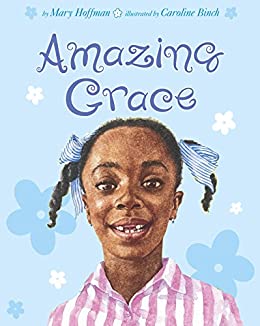Books that explore racial equity and identity, ages 4-8
Talking to your younger kids about racism can be challenging. How do you put it into words so they can understand it? How can you help them develop empathy? How can you help them see the world through an equity lens? Here are some books to help get them thinking about it.
Ruby Bridges Goes to School: My True Story
by
The extraordinary true story of Ruby Bridges, the first African-American child to integrate a New Orleans school–now with simple text for young readers!
In 1960, six-year-old Ruby Bridges walked through an angry crowd and into a school where she changed history.
Amazing Grace
by
Grace loves stories, whether they’re from books, movies, or the kind her grandmother tells. So when she gets a chance to play a part in Peter Pan, she knows exactly who she wants to be.Classmates tell Grace that she can’t play Peter Pan because she is a Black girl, but that’s not the end of the story!
New Shoes
by
Ella Mae is thrilled at the chance to get new shoes. But at the shoe store, Ella Mae and her mother have to wait until there are no white customers to serve first.
Disappointed by her treatment, Ella Mae and her cousin Charlotte hatch a plan to help others in their community find better-fitting shoes without humiliation.
Last Stop on Market Street
by
Every Sunday after church, CJ and his grandma ride the bus across town. But today, CJ wonders why they don’t own a car like his friend Colby. Why doesn’t he have an iPod like the boys on the bus? How come they always have to get off in the dirty part of town? Each question is met with an encouraging answer from grandma, who helps him see the beauty—and fun—in their routine and the world around them.
The Day You Begin
by
There are many reasons to feel different. Maybe it’s how you look or talk, or where you’re from; maybe it’s what you eat, or something just as random. It’s not easy to take those first steps into a place where nobody really knows you yet, but somehow you do it.
The Name Jar
Being the new kid in school is hard enough, but what about when nobody can pronounce your name? Having just moved from Korea, Unhei is anxious that American kids will like her. So instead of introducing herself on the first day of school, she tells the class that she will choose a name by the following week. Her new classmates are fascinated by this no-name girl and decide to help out by filling a glass jar with names for her to pick from. On the day of her name choosing, the name jar has mysteriously disappeared. Encouraged by her new friends, Unhei chooses her own Korean name.
The Night Is Yours
by
This lyrical text, narrated to a young girl named Amani by her father, follows her as she plays an evening game of hide-and-seek with friends at her apartment complex. The moon’s glow helps Amani find the last hidden child, and seems almost like a partner to her in her game, as well as a spotlight pointing out her beauty and strength.



